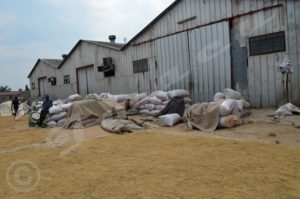Prices of imported food products that have been exempted from customs duties have hardly decreased. Consumers think importers are taking advantage of the tax-exemption.

It’s the availability of locally-produced rice that may have caused the slight price decrease of imported rice.
The Burundian Association of Consumers (ABUCO) is worried that the government measure to exonerate certain imported food products may be profiting importers who may have kept prices high.
Sources from the Burundi Revenue Authority say exemption of import duty for maize, cassava, and beans has been effective from 12 May. “The products flow in the country in large quantity” says a source who spoke on condition of anonymity because he was not allowed to speak publically about matter. Importers pay only a fixed tax of BIF18, 000 (slightly over $ 10), he says.
But the decrease of prices at the market is so small that consumers don’t see any real differences. For instance, 1 kg from Tanzania decreased of only BIF 100 from BIF 2700 to 2600 at some shops.
For maize flour from Uganda, the prices have remained the same BIF 2,000 a kg.
Noël Nkurunziza, the Chairman of ABUCO, doubts that the prices reflect the tax-exemption the products are subject to.
He says that even the little price decline may have been influenced by the increase of locally-produced foodstuffs at the market given that the application of the tax-exemption measure coincided with the harvest.
He pleads for the setting up of a joint commission to closely watch whether traders are fixing prices of exonerated products correctly.
“We have asked for the setting up of a commission that will closely watch whether prices are set according to the exoneration. If not, the tax-exemption will only profit importers”, says M. Nkurunziza.
The government took the measure to exonerate the food products to relieve Burundians from high prices that worsened their living conditions.
The measure that was signed on April 27 has a three-month validity. It was undermined from the start because it was implemented almost three weeks after it was signed.



















 IWACU Open Data
IWACU Open Data

